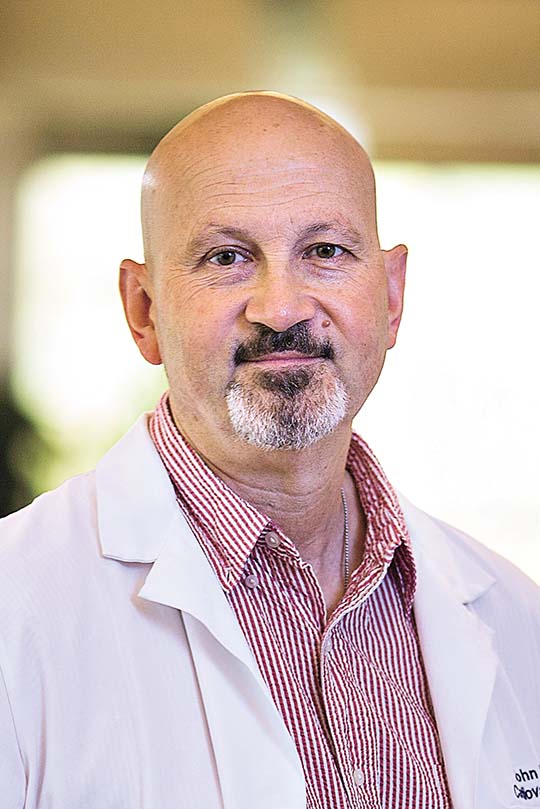Cardiovascular care done well at UPHS

Images provided by UPHS - Marquette UPHS - Marquette gives people from across the Upper Peninsula access to heart and vascular services that they would otherwise need to travel downstate or to another state to get.
Western Upper Peninsula residents know that they have access to a number of different pharmacies, express care clinics and emergency departments for the occasional accident or injury. However, some may be surprised to read that a state-of-the-art cardiovascular center and catheter lab is located right in their backyard.
UP Health System-Marquette is an American College of Cardiology-certified Chest Pain Center and Cath Lab with PCI (percutaneous coronary intervention). As such, it is one of the only places in the area where people can go to receive crucial care for a number of potentially life-saving interventions.
“We’re basically a hub for the entire U.P.,” said Dr. John Pap, who specializes in Cardiology and Heart and Vascular Health at UPHS-Marquette.
He also treats patients at UPHS-Portage.
“Most people in the U.P. are closer to Marquette than any other facility that have our capabilities,” Pap said.

Images provided by UPHS - Marquette Dr. John Pap is a heart and vascular specialist at UPHS - Marquette but also sees patients at the UPHS - Portage campus in Hancock.
Those capabilities include comparatively simple procedures like catheterization and stenting as well as more advanced procedures like transcatheter aortic valve replacement and open-heart surgeries like bypasses.
While some heart problems are fairly rare, others are much more common than one might think.
“Atrial fibrillation is one of the most common kinds of arrhythmias,” said Dr. Pap. “It affects around one in four of us over our lives.”
Arrhythmias occur when something impacts the heart’s electrical signal system, causing it to beat irregularly. While some arrhythmias are harmless, others can be fatal. Some can be treated with medication while others require more advanced procedures.
Valve problems, narrowed aortic valves, and coronary artery disease are other conditions commonly treated at UPHS-Marquette.
“We don’t know the cause of coronary artery disease, but we do know some of the risk factors,” said Dr. Pap. “The risk factors are split into modifiable and unmodifiable factors.”
Unmodifiable factors are those that we can’t control; those like age, family history, and sex. Modifiable risk factors are those that we can control; those like smoking, diet, and physical activity. Other factors, like cholesterol, are a little of both.
“Cholesterol is partially related to what people eat, but is also determined by genetics,” said Dr. Pap. “There are a lot of things that we can do to avoid those risk factors, but some of them are harder than others.”
Common lifestyle changes to improve heart health include quitting smoking, incorporating more physical activity into the daily routine, or using diets like the DASH diet to cut back on unhealthy dietary elements like salt. Many of these changes can be done alone but some are best done with the help of your care provider.
“When it comes to cardiovascular disease, you can control your fates to some extent by eating right, exercising, and seeing your primary care providers to know what your risk factors actually are,” said Dr. Pap.
For more information on the cardiovascular care available at UP Health System, visit mgh.org/our-services/heart-and-vascular or call 906-449-3440.
EDITOR’S NOTE: This feature is part of an advertising package. All the content in this feature has been created or approved by the advertiser, which is solely responsible for the content. Businesses interested in being featured on the Business Page may call Yvonne Robillard at 483-2220.
- Peters
- Images provided by UPHS – Marquette Dr. John Pap is a heart and vascular specialist at UPHS – Marquette but also sees patients at the UPHS – Portage campus in Hancock.
- Images provided by UPHS – Marquette UPHS – Marquette gives people from across the Upper Peninsula access to heart and vascular services that they would otherwise need to travel downstate or to another state to get.






